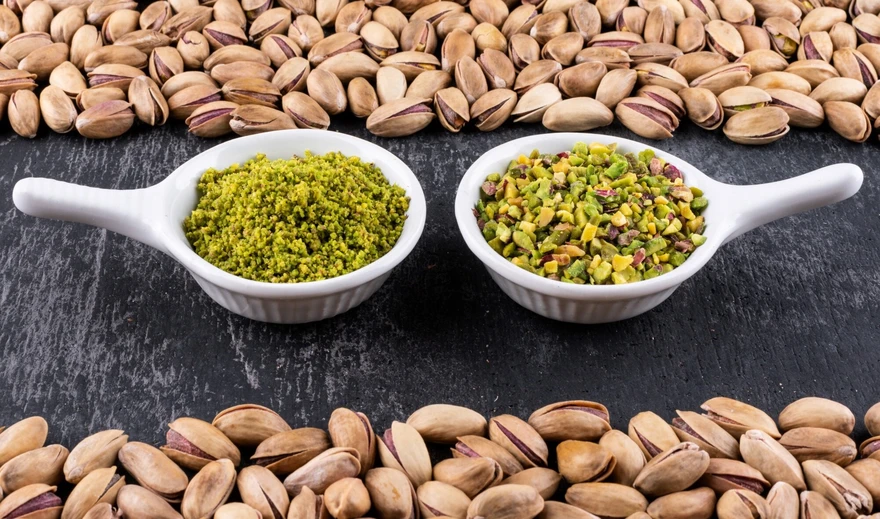Preventive Healthcare
Polyphagia: Understanding Excessive Hunger and Its Health Impacts
55 Views
0

What is polyphagia (hyperphagia)?
Polyphagia, or hyperphagia, is the medical term for extreme hunger or excessive eating. People with polyphagia feel hungry all the time, even if they have just finished a meal. They tend to crave large amounts of food and eat much more than usual. Unlike normal hunger that subsides after eating, polyphagia is characterised by a constant, insatiable appetite.
Some common signs of polyphagia include:
- Persistent feelings of intense hunger
- Craving and consuming large quantities of food
- Eating more frequently than usual
- Feeling unsatisfied even after having a full meal
- Waking up hungry in the middle of the night
What causes polyphagia (hyperphagia)?
Polyphagia can stem from various underlying health issues. Some of the most common polyphagia causes include:
Diabetes
Uncontrolled diabetes, both type 1 and type 2, is a leading cause of polyphagia. When your body can't produce enough insulin or use it effectively, glucose builds up in the bloodstream instead of being absorbed by the cells for energy. As a result, your cells feel starved and send hunger signals, making you crave more food.
Hyperthyroidism
An overactive thyroid gland (hyperthyroidism) can speed up your metabolism, increasing your appetite and causing polyphagia symptoms. Hyperthyroidism also leads to rapid heartbeat, sudden weight loss, nervousness, and irritability.
Stress and anxiety
Emotional stress and anxiety can trigger polyphagia in some people. Stress causes the body to release cortisol, a hormone that increases appetite, especially for high-calorie comfort foods. Many people tend to overeat as a coping mechanism during times of stress.
Certain medications
Some medicines, such as corticosteroids and antipsychotics, can increase appetite and lead to polyphagia. If you notice a significant change in your hunger levels after starting a new medication, consult your doctor.
Lack of sleep
Sleep deprivation can disrupt the hormones that control hunger and appetite, causing increased food cravings and polyphagia. Aim for 7-9 hours of quality sleep each night to keep your hunger in check.
Diabetes and Polyphagia
Diabetes is one of the major polyphagia causes that needs prompt medical attention.
Understanding the Connection
Diabetes is a chronic condition characterised by high blood sugar levels, and one of its lesser-known but significant symptoms is polyphagia, or hyperphagia. The relationship between diabetes and polyphagia is rooted in the way insulin functions in the body.
In a healthy individual, insulin, a hormone produced by the pancreas, facilitates the movement of glucose from the bloodstream into cells, where it is used for energy. However, in diabetes, this process is disrupted.
In Type 1 diabetes, the pancreas fails to produce enough insulin. Conversely, in Type 2 diabetes, the body's cells become resistant to insulin's effects. As a result, glucose remains in the bloodstream rather than entering the cells. This leads to elevated blood sugar levels and deprives cells of the energy they need.
When cells are starved of energy, they send signals to the brain that mimic hunger, triggering polyphagia. This physiological response is the body’s way of attempting to compensate for the lack of energy, causing individuals with diabetes to feel an increased appetite, despite having sufficient energy reserves in the form of glucose in the blood.
Symptoms and Implications
Polyphagia often accompanies other common symptoms of diabetes, creating a distinct clinical picture. Individuals with diabetes may also experience:
- Extreme Thirst (Polydipsia): The body attempts to flush out excess glucose through urination, leading to dehydration and an intense feeling of thirst.
- Frequent Urination (Polyuria): High blood sugar levels increase urine production, which further contributes to dehydration.
- Unexplained Weight Loss: Despite eating more, individuals may lose weight as the body starts breaking down fat and muscle for energy due to the inability to utilise glucose effectively.
- Blurred Vision: High blood sugar can cause fluid to be pulled from the lenses of the eyes, affecting vision.
- Slow Wound Healing: Elevated glucose levels can impair blood circulation and damage nerves, leading to delayed healing.
Importance of Management
Experiencing polyphagia alongside these symptoms is a warning sign that should not be ignored. It’s crucial to monitor blood sugar levels regularly and consult a healthcare provider for appropriate diagnosis and management. Untreated diabetes can result in severe complications, including nerve damage, kidney disease, and cardiovascular problems.
To manage diabetes effectively, healthcare providers often recommend a combination of medications, dietary changes, and lifestyle modifications. Regular monitoring and proactive management of blood sugar levels are vital for preventing the long-term consequences of diabetes, including those linked to polyphagia.
Polyphagia and Hormone-Related Conditions
Hormonal imbalances, particularly those involving the thyroid gland, can cause significant changes in appetite and lead to polyphagia.
Hyperthyroidism, or an overactive thyroid, occurs when the thyroid gland produces too much thyroid hormone. This speeds up metabolism, increases the body's energy needs, and ramps up appetite, resulting in polyphagia symptoms. Other signs of hyperthyroidism are unexpected weight loss, rapid heartbeat, sweating, and anxiety.
On the other hand, hypothyroidism, or an underactive thyroid, is characterised by a lack of thyroid hormones. While it more commonly causes weight gain and decreased appetite, some people with hypothyroidism may experience polyphagia. Hypothyroidism can also lead to fatigue, dry skin, constipation, and sensitivity to cold.
Thyroid disorders are usually treated with medications that help regulate hormone levels. If you suspect a thyroid problem, consult an endocrinologist for proper diagnosis and polyphagia treatment.
Mental Health Conditions and Polyphagia
Certain mental health issues can have a significant impact on eating habits and trigger polyphagia. These include:
- Depression: Feelings of sadness, hopelessness, and low energy can drive some people to overeat as a form of self-comfort or to cope with negative emotions.
- Anxiety: Constant worrying and stress can lead to emotional eating and polyphagia. Some people may turn to food as a distraction from anxious thoughts.
- Eating disorders: Conditions like binge eating disorder and bulimia nervosa involve episodes of consuming large amounts of food in a short time, often driven by emotional distress.
If you find yourself constantly reaching for food in response to emotions rather than physical hunger, consider talking to a mental health professional. They can help you develop healthier coping strategies and address any underlying psychological issues contributing to polyphagia.
Rare Medical Conditions and Polyphagia
In some rare cases, polyphagia, or hyperphagia, can be a symptom of specific medical disorders:
- Prader-Willi syndrome: This genetic disorder causes constant hunger, leading to excessive eating and obesity if left unmanaged.
- Klein-Levin syndrome: Characterised by episodes of excessive sleeping, polyphagia, and abnormal behaviour.
- Brain tumours: In rare instances, tumours in the hypothalamus (the brain region that controls appetite) can cause polyphagia.
While these conditions are uncommon, it's essential to be aware of them and consult a healthcare provider if you experience persistent polyphagia along with other unusual symptoms.
How is polyphagia treated?
Polyphagia treatment depends on the underlying cause. The first step is to identify any medical conditions or lifestyle factors contributing to excessive hunger.
For diabetes-related polyphagia, the key is to manage blood sugar levels through:
- Medications like insulin or oral diabetes drugs
- Regular blood glucose monitoring
- A balanced diet rich in fibre and low in simple sugars
- Staying physically active
- Maintaining a healthy weight
For a thyroid disorder, polyphagia treatment may involve:
- Medications to regulate thyroid hormone levels (e.g., levothyroxine for hypothyroidism, anti-thyroid drugs for hyperthyroidism)
- Radioactive iodine therapy or surgery in some cases of hyperthyroidism
For polyphagia causes stemming from mental health issues, treatment options include:
- Psychotherapy to address emotional triggers and develop coping skills
- Medications like antidepressants or anti-anxiety drugs if needed
- Support groups for managing eating disorders
When should polyphagia be treated by a doctor?
It's important to consult a doctor if you experience persistent polyphagia along with:
- Unintended weight loss or gain
- Fatigue and weakness
- Increased thirst and urination
- Mood changes and irritability
- Gastrointestinal issues like bloating or constipation
Your doctor can run tests to check for underlying health conditions and recommend an appropriate polyphagia treatment plan. They may refer you to a specialist like an endocrinologist, dietitian, or mental health professional for further care.
Conclusion
Remember, while occasional hunger pangs are normal, constant and excessive hunger can indicate an underlying issue that needs medical attention. Don't hesitate to reach out for help if polyphagia is affecting your quality of life.
If you suspect you may have polyphagia, consider getting a comprehensive health check-up to identify any underlying issues. Metropolis Healthcare offers a wide range of diagnostic tests and health packages that can help assess your overall well-being. Their team of experienced phlebotomists can collect blood samples from the comfort of your home, and you'll receive your reports online via email or the Metropolis app.












1701259759.webp)









 WhatsApp
WhatsApp